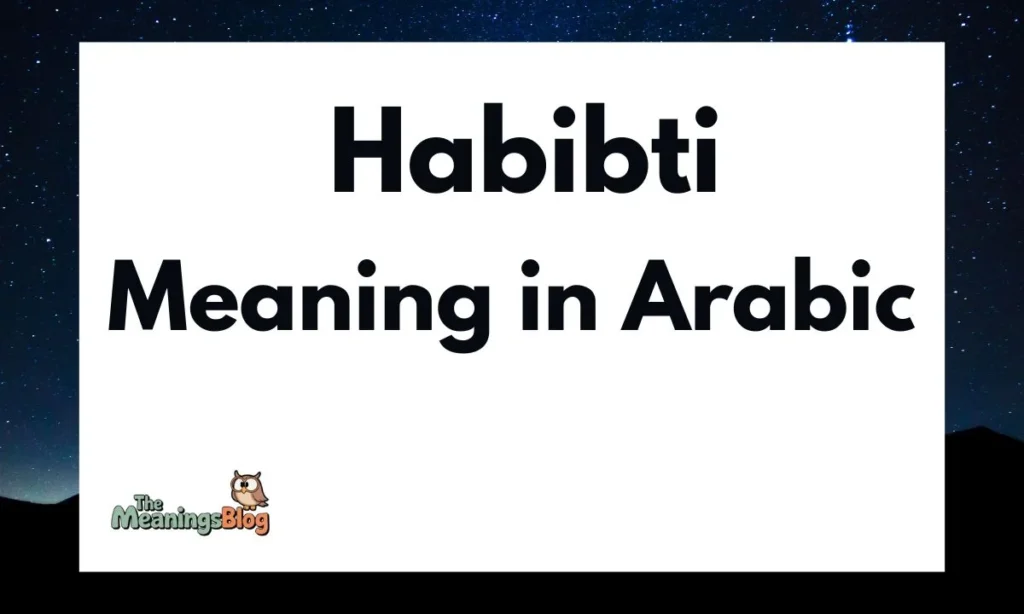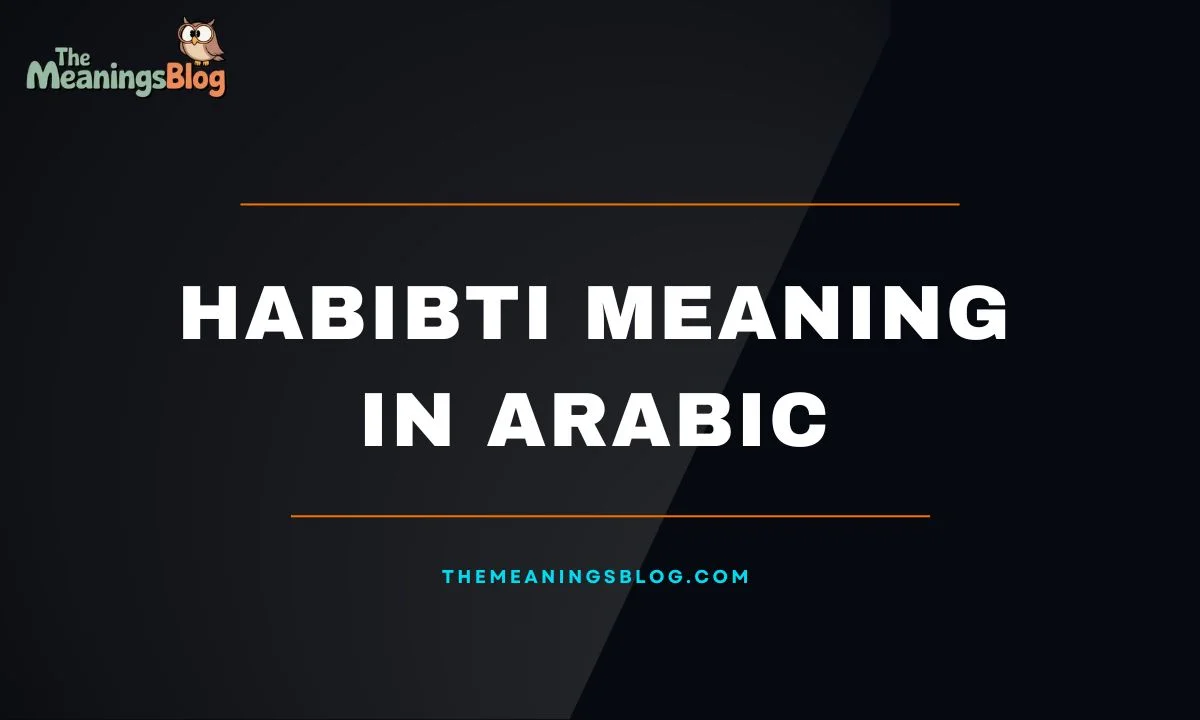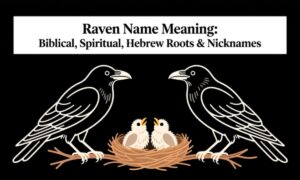The Arabic language contains many beautiful words that express love. Habibti is one of the most tender terms of endearment. This word carries warmth and deep affection in every syllable. People use it daily to show love to someone special.
Understanding Habibti opens doors to Arabic culture and communication styles. The word reflects how Arabic speakers express their feelings openly. Learning this term helps you connect with Arabic-speaking friends better. It also shows respect for their language and emotional expressions.
Habibti Meaning in Arabic

Habibti translates directly to “my beloved” when speaking to females. It means “my darling” or “my dear one” in English. The word expresses deep love and affection toward a woman. Arabic speakers use it to address wives, daughters, or friends.
The pronunciation follows a simple pattern that anyone can learn. You say it as “ha-beeb-tee” with stress on the middle. The feminine ending makes it specific to women and girls. This distinction is important in Arabic grammar and daily conversations.
Read More: Mashallah Meaning in Arabic
Linguistic Root and Grammatical Usage
The word habibti comes from the ancient Arabic root letters. These three letters are ح-ب-ب, known as H-B-B in English. This root forms the foundation of all love-related words today. Every variation stems from this powerful linguistic base across centuries.
Arabic grammar transforms the base word through suffixes and prefixes. The word habib means “beloved” without specifying gender or possession. Adding feminine and possessive markers creates the specific term habibti. This system allows Arabic to be precise about relationships clearly.
In Arabic grammar:
- Habib (حبيب) – The beloved one, masculine form without possession
- Habiba (حبيبة) – The beloved one, feminine form without possession
- Habibi (حبيبي) – My beloved, used when addressing males only
- Habibti (حبيبتي) – My beloved, used when addressing females only
- Habibtina (حبيبتنا) – Our beloved, used for collective female possession
Examples of “Habibti” in Arabic Sentences
“Habibti, sabah al-khayr!” (حبيبتي، صباح الخير!)
“My darling, good morning to you this beautiful day!”
“Wahashtini ya habibti.” (وحشتني يا حبيبتي.)
“I missed you so much, my beloved one always.”
“Habibti, hal anti bi-khayr?” (حبيبتي، هل أنت بخير؟)
“My love, are you doing well and feeling happy?”
“Shukran habibti ala kul shay.” (شكراً حبيبتي على كل شيء.)
“Thank you my darling for absolutely everything you do.”
“Ana mabsout maaki ya habibti.” (أنا مبسوط معك يا حبيبتي.)
“I feel happy when I am with you always.”
“Habibti, inti jamila jiddan.” (حبيبتي، أنتِ جميلة جداً.)
“My beloved, you look absolutely beautiful today and always.”
“Uhibbuki min kul qalbi ya habibti.” (أحبك من كل قلبي يا حبيبتي.)
“I love you with all my heart forever.”
“Habibti, iftahri al-bab min fadlik.” (حبيبتي، افتحي الباب من فضلك.)
“My dear, please open the door for me now.”
“Ma akhdhar al-ta’am ya habibti?” (ما أخضر الطعام يا حبيبتي؟)
“Should I prepare the food now, my darling one?”
“Habibti, nawart hayati kulaha.” (حبيبتي، نورت حياتي كلها.)
“My beloved, you brightened my entire life with joy.”
Cultural or Quranic Significance of “Habibti”
The root word appears frequently throughout the Holy Quran’s verses. Allah uses this root when describing His love for believers. The linguistic connection makes habibti spiritually meaningful to many Muslims. Understanding this adds depth to the word’s everyday usage.
Cultural and religious significance includes:
- The Quran mentions “yuhibbu” (loves) over 80 times throughout
- Prophet Muhammad (peace be upon him) was called “Habibullah” (beloved of Allah)
- Arab families use habibti across generations to strengthen bonds
- The term appears in classical Arabic poetry and love songs
- Islamic scholars teach about divine love using this root word
Arab culture encourages open expressions of love within families today. Parents call their daughters habibti from childhood through adulthood naturally. Husbands use it with wives to maintain a romantic connection daily. Friends also exchange this term to show platonic affection openly.
Read More: Salamat Meaning in Arabic
Common Misunderstandings or Mistakes
Many learners confuse the masculine and feminine forms of endearment. Using habibi for a woman sounds incorrect to native speakers. The mistake happens because both words sound very similar initially. Paying attention to the ending helps avoid this common error.
Another mistake involves using habibti in overly formal business settings. The word creates intimacy that professional environments don’t usually require. Some people overuse it with strangers, which can feel uncomfortable. Context matters greatly when choosing to use this affectionate term.
| Mistake Type | Wrong Usage | Correct Usage | Why It Matters |
| Gender Confusion | Saying “habibi” to a female friend | Saying “habibti” to a female friend | Arabic grammar requires gender agreement in all terms |
| Context Error | Using “habibti” with your female boss | Using professional terms like “ustadha” (teacher/madam) | Workplace relationships need formal language for respect |
| Pronunciation Mistake | Saying “ha-bee-bee” for females | Saying “ha-beeb-tee” with clear ending | The “ti” sound indicates feminine possession clearly |
| Overuse Problem | Calling every woman “habibti” immediately | Using it only with close relationships | The term implies intimacy that requires established trust |
| Cultural Misunderstanding | Using it casually like “buddy” | Reserving it for meaningful relationships | Arabic speakers view it as deeply personal |
Difference Between Habibi and Habibti
| Aspect | Habibi (حبيبي) | Habibti (حبيبتي) |
| Gender Usage | Used exclusively when addressing males | Used exclusively when addressing females |
| Pronunciation | Pronounced as “ha-bee-bee” with stress on the second syllable | Pronounced as “ha-beeb-tee” with stress on the second syllable |
| Grammatical Form | Masculine possessive adjective with “i” ending | Feminine possessive adjective with “ti” ending |
| Who Uses It | Anyone speaking to a male loved one | Anyone speaking to a female loved one |
| Common Contexts | Wife to husband, parent to son, friend to male friend | Husband to wife, parent to daughter, friend to female friend |
| Written Form | Written as حبيبي in Arabic script | Written as حبيبتي in Arabic script |
| Literal Translation | “My beloved (male)” or “my dear (male)” | “My beloved (female)” or “my dear (female)” |
| Cultural Weight | Carries deep affection and an intimate connection | Carries deep affection and an intimate connection |
| Formality Level | Informal and intimate, not for business settings | Informal and intimate, not for business settings |
| Religious Connection | Shares root with Prophet’s title “Habibullah” | Shares root with Prophet’s title “Habibullah” |
Why You Should Learn “Habibti”
Learning Habibti enriches your Arabic vocabulary with meaningful emotional expression. The word helps you communicate affection in culturally appropriate ways. Understanding it shows respect for Arabic-speaking communities and their values. Your relationships with Arabic speakers will deepen through proper usage.
Read More: Hayati Meaning in Arabic
Key benefits of learning this term:
- Express genuine love to Arabic-speaking women in your life
- Understand Arabic songs, movies, and conversations better than before
- Connect with Middle Eastern and North African cultures more deeply
- Show respect by using appropriate terms instead of English translations
- Enhance your overall Arabic language learning journey with practical vocabulary
- Build stronger emotional bonds with Arabic-speaking friends and family members
Conclusion
Habibti represents one of Arabic’s most beautiful expressions of love. The word carries centuries of linguistic tradition and cultural meaning. Using it correctly shows respect for Arabic grammar and social customs. Every Arabic learner benefits from understanding this essential term of endearment.
The root H-B-B connects habibti to divine love in Islam. This spiritual dimension adds profound meaning to everyday conversations today. Whether speaking to family, friends, or romantic partners, habibti works. Mastering this word opens doors to deeper connections with millions.
Frequently Asked Questions
What does habibti mean in Arabic?
Habibti means “my beloved” or “my darling” when addressing a female. It expresses deep love and affection in Arabic.
Can I use habibti for a male friend?
No, habibti is exclusively for females. You should use “habibi” when addressing males instead.
What is the difference between habibi and habibti?
Habibi is for males while habibti is for females. The “ti” ending indicates feminine possession in Arabic.
How do you pronounce habibti correctly?
Pronounce it as “ha-beeb-tee” with emphasis on the middle syllable. The ending “ti” sound is crucial for correct usage.
What does helwa habibti mean in English?
Helwa habibti means “beautiful my darling” or “sweet my beloved.” It combines two affectionate terms lovingly.
Is habibti appropriate in formal situations?
No, habibti is intimate and informal language. Use respectful titles like “sayidati” in professional or formal settings.

Noah shares deep insights into meanings, metaphors, celebrity and Net Worth, inspiring readers with wisdom and reflection. His passion is uncovering hidden truths that bring clarity, inspiration, and spiritual growth to everyday life.








